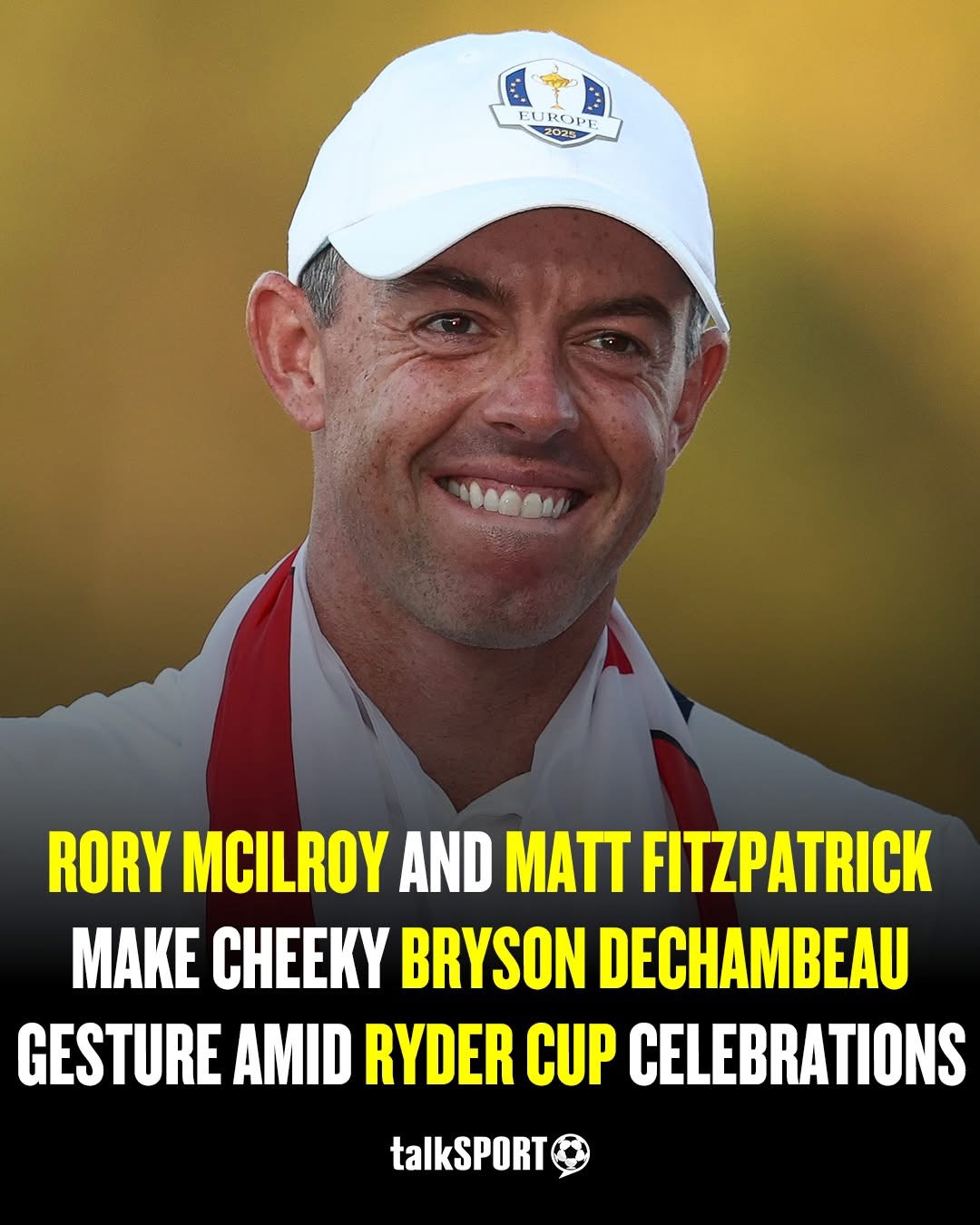The Ryder Cup is famous for its high-stakes golf, emotional swings, and unforgettable storylines — but just as often, the post-match celebrations provide their own fireworks. This year was no exception as Rory McIlroy and Matt Fitzpatrick added a cheeky twist to Europe’s victory party, making a playful gesture directed at none other than American powerhouse Bryson DeChambeau.
The celebrations erupted in true European fashion once the final point was secured, with champagne showers, flag-waving, and raucous singing dominating the evening. In the middle of the jubilant scenes, McIlroy and Fitzpatrick shared a moment that immediately caught the attention of fans. The pair mimicked DeChambeau’s trademark big-hitting pose, raising imaginary drivers high into the air and pretending to unleash monster drives.
The gesture, which was met with laughter and cheers by their teammates, was clearly lighthearted, though it carried an edge of competitive banter. DeChambeau, known across the golfing world for his muscle-bound approach to the game and his ability to crush the ball further than almost anyone else on Tour, has become a larger-than-life figure. While his unique style has earned him legions of fans, it has also made him a target for gentle ribbing from his rivals.
For McIlroy, the gesture was especially significant. The Northern Irishman has had a rollercoaster history with DeChambeau, at times praising his innovation while at other times expressing skepticism about whether power alone can win the Ryder Cup. Fitzpatrick, usually a quieter character on the European team, seemed to relish the moment as well, embracing the playful spirit that has defined much of Europe’s team chemistry.
The incident reflects what makes the Ryder Cup so different from any other golf competition. In individual tournaments, players are measured and diplomatic. But in the Ryder Cup, the team element unleashes raw emotions — joy, frustration, pride, and yes, humor. McIlroy and Fitzpatrick’s tongue-in-cheek tribute to DeChambeau was not malicious, but rather a snapshot of the friendly rivalries that fuel the event.
DeChambeau himself had endured a challenging Ryder Cup, with flashes of brilliance overshadowed by inconsistency. While his power off the tee thrilled the crowds, questions about his compatibility in team formats resurfaced, particularly when compared to the chemistry displayed by Europe’s pairings. The McIlroy-Fitzpatrick gesture was a subtle reminder that in the Ryder Cup, togetherness often triumphs over individual firepower.
Fans on social media were quick to react. Clips of the imitation spread rapidly, with many praising the Europeans’ sense of humor. “That’s why we love the Ryder Cup — it’s golf, but with personality,” one fan wrote. Others suggested the playful mocking might add more spice to the rivalry when the two teams meet again in the United States.
As Europe savored another famous victory, McIlroy and Fitzpatrick’s cheeky nod to DeChambeau became one of the standout images of the night. It encapsulated the spirit of celebration, the camaraderie of the European side, and the theatrical rivalries that make the Ryder Cup more than just golf.
One thing is certain: when the Ryder Cup returns to American soil, Bryson DeChambeau will not have forgotten the moment. And knowing his competitive fire, he may already be planning his own response.









